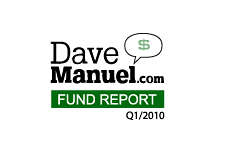A Low Share Price Doesn't Necessarily Make a Stock "Cheap"
 Here is one of the biggest problems that novice (and even some advanced) investors in the stock market will encounter during their investing career. They will mistakenly assess a stock as being "cheap" or having "value" if the share price has declined precipitously from its all-time high. "XYZ was trading at $40 just a year ago," they will say, "and now it is trading at $3! It must be a buy!"
Here is one of the biggest problems that novice (and even some advanced) investors in the stock market will encounter during their investing career. They will mistakenly assess a stock as being "cheap" or having "value" if the share price has declined precipitously from its all-time high. "XYZ was trading at $40 just a year ago," they will say, "and now it is trading at $3! It must be a buy!"This is one of the biggest mistakes that you can make as an investor in the stock market. A stock trading at $3 doesn't necessarily make it a good value, just as a stock trading at $200 doesn't make it expensive. There were many people that naturally assumed that Google was overvalued because it was trading at $400 .. $300 later.. does this also mean that Berkshire Hathaway is "over-valued" because one share would cost you around $100k to buy? Of course not..
If a stock has declined from $40 to $3 that means that there are MAJOR problems afoot at the company. You need to be extra careful when dealing with these fallen heroes, because many of these stocks will simply never recover. You will either have dead money (meaning the stock will never move), or worse, you run the risk of holding a stock that will eventually declare bankruptcy. Keep in mind that common shareholders are the last in line in the case of a bankruptcy, meaning that most often your common shares are marked to zero and you lose 100% of your investment.
If you are going to try and invest in some of these stocks that are way off their highs and obviously damaged, you need to know what you are doing. You need to be able to read a balance sheet. Is the company losing money hand over fist? Are they diluting their shareholders to raise cash through secondary offerings? Are insiders dumping shares? Are they in danger of defaulting on their financial covenants? Are they running out of cash?
You need to be able to tell how the bonds are doing as well. Bonds are the "smart" money - if the stock is performing well and the bonds aren't, then there is something up. If a company's bonds start to drop and the common equity doesn't follow, then watch out, cause a drop is usually coming.
There are many reasons that a stock could drop from $40 to $3. Maybe company management is dumping shares and fleeing the company. Maybe they are losing market share rapidly to competitors. Maybe their products are becoming obsolete. None of these scenarios are particularly attractive.
My recommendation would be to try and find companies with low share prices that haven't taken off yet, but seem like they are poised. It is much easier to find high-fliers this way, rather than scavenging through the garbage dump of cast-off stocks that have plummeted to earth. Too many people have ridden stocks right into bankruptcy because they are too proud to admit that they were run. My advice would be to avoid these types of situations in the first place.
Filed under: Stock Market Education | General Knowledge



